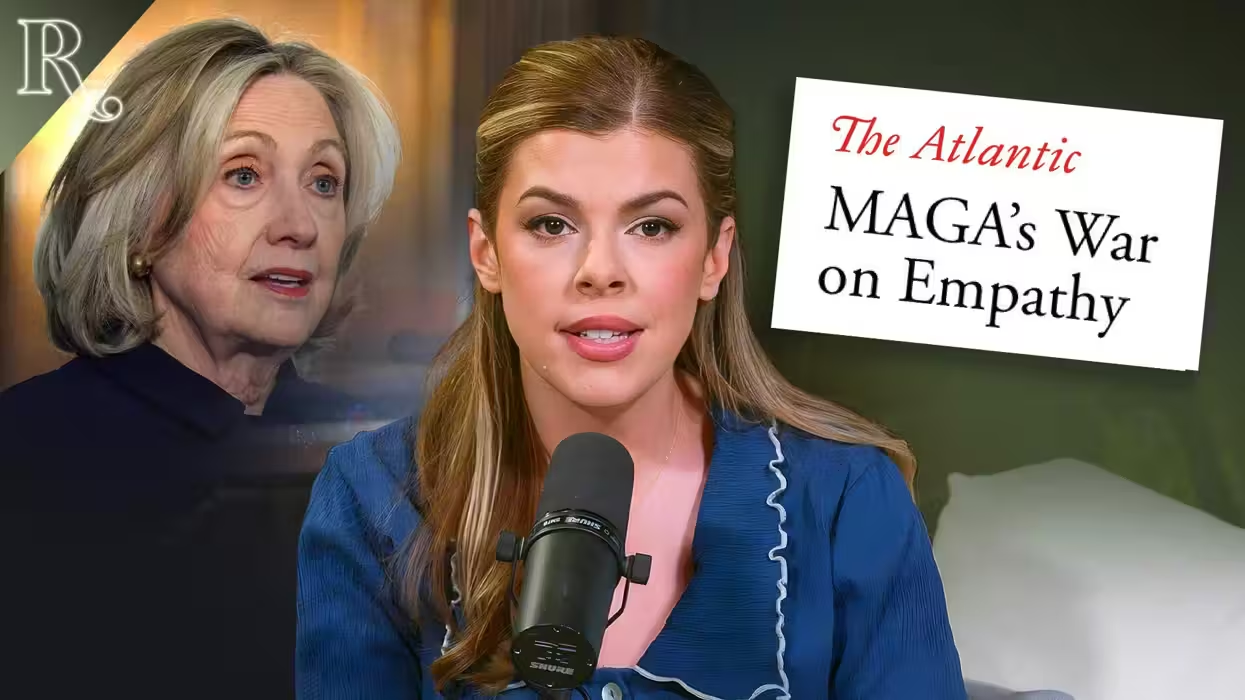
© 2026 Blaze Media LLC. All rights reserved.
 Will Youth Vote Be There for Obama in 2012 as 2008? (AP Photo/Mark Lennihan, File)
Will Youth Vote Be There for Obama in 2012 as 2008? (AP Photo/Mark Lennihan, File)
In 2008, Barack Obama commanded two thirds of the youth vote. He beat Republican challenger John McCain by a whopping 34-point margin, 66 percent to 32 percent, in the 18 to 29-year-old demographic. There is no other way to slice it: it was a complete butt kicking by the calm and cool guy, who campaigned on euphemisms like hope and change and knew how to use Twitter. Wearing an Obama-Biden button on your backpack, permanently scarring your car with a bumper sticker, or volunteering for his campaign on the weekends seemed trendy, savvy, and popular.
It would be easy to look at the polls today, which show President Obama with a very solid lead (recent polls have it at 55-36) among young voters and say that not much has changed. After all, in but three week’s time the President will undoubtedly capture the demographic by double digits. But when you look past the numbers, things start to get more complicated.
President Obama’s lead among young voters is substantial, but his failure to maintain the epic levels of the 2008 election, in part reflects the failures of his policies. Youth unemployment in this country is approximately double the national average, and from April to July the number of people ages 16 to 24 who are unemployed, rose by 2.1 million to 19.5 million people.
These numbers don’t lie, and to the extent that the polling data shows President Obama slipping in the polls when it comes to young voters, one must question: are these voters simply growing up or are they growing apart from the Democratic party and its fearless leader?
The second presidential debate began with a question from coed Jeremy Epstien. Epstien voiced the concerns of so many college students and recent grads when he asked the candidates if they could reassure him and his parents that he will be able to “sufficiently support” himself after graduation. What was President Obama’s response: a three part answer that touched on the value of higher education (something Epstein probably knows seeing as he introduced himself as a COLLEGE STUDENT), the need to be energy independent, and, finally, the importance of creating new manufacturing jobs. Something tells me that is not the kind of “sufficient support” Epstein, and countless others (myself included), were looking for.
We are now talking about a coalition of voters, who are more tentative to accept empty promises that contain words like hope and change from a man who now looks worn and weathered, not shiny and new. Over the past four years these ‘kids’ (some of whom were not eligible to vote in last election) ‘grew up’ as they watched their parents struggle to make ends meet or faced their own uncertainty as the cost of living continued to increase and their job prospects faltered. And what about the actual kids – 12, 13, 14, 15-year-olds – who are very well aware of the fact that mom and dad can’t afford to buy those new Nike sneakers or North Face jacket. What will happen when they are eligible to vote in a few years? Will they favor the out-of-control tax and spending methods of progressives, liberals, and Democrats, or will they favor the smaller and more fiscally responsible government championed by conservatives and Republicans?
As a senior at New York University, I attend a liberal college, in a very liberal city, and an even more liberal state. I have heard countless stories about the good ol’ days of 2008 when the thought process was simply: You’re not voting for Obama? Oh, then you must be voting for Hillary. But the atmosphere around campus today is quite different. My politics classes are filled with policy discussions that frequently result in critiques of the administration’s handling of issues ranging from foreign policy to tax code. Peers in my journalism classes no longer laugh off assertions of media bias, instead, we dissect the worst offenders and look for solutions.
I don’t see these changes as merely ‘growing up’, I see these changes (many which have I have observed particularly over the last year or two) as a sign that the notion of a big government that favors redistribution and overpopulates the discourse with trivial social issues is no longer as attractive as it once seemed. If the jewel of the Democratic Party – President Obama – is having trouble selling these policies to the allegedly lockstep voters of the youth demographic, who can they possibly sell them to?
What I am describing is not a particularly overt change in behavior or one that will have much of an effect on the polls this November, but there is a palpable sense the young people are frustrated, and their saviors at the DNC are no longer providing plausible solutions to very real problems. If this trend continues, which I believe it will, regardless of who wins the election, Democrats may find themselves with a large problem on their hands: the youth vote hasn’t just grown up, they have grown disenfranchised and, dare I say, more conservative.
Want to leave a tip?
We answer to you. Help keep our content free of advertisers and big tech censorship by leaving a tip today.
Want to join the conversation?
Already a subscriber?
more stories
Sign up for the Blaze newsletter
By signing up, you agree to our Privacy Policy and Terms of Use, and agree to receive content that may sometimes include advertisements. You may opt out at any time.
Related Content
© 2026 Blaze Media LLC. All rights reserved.
Get the stories that matter most delivered directly to your inbox.
By signing up, you agree to our Privacy Policy and Terms of Use, and agree to receive content that may sometimes include advertisements. You may opt out at any time.






